| About | Registration | Program | Speakers | Livestreaming | Accommodation | Getting here | Photos | Documents |
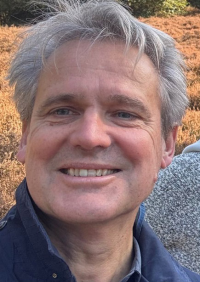 Day 1, 2024.12.09., 17:00-17:45 Parallel session: What is the main challenge for you in engaging in national and international cooperations?
Day 1, 2024.12.09., 17:00-17:45 Parallel session: What is the main challenge for you in engaging in national and international cooperations?Professor in Molecular Pharmacology, Department Translational Neuroscience, University Medical Center Utrecht . Scientific advisor at Rintveld Eating disorder clinic (Zeist, NL). Guest professor Sahlgrenska Academy, University of Gothenburg, Sweden. Member Netherlands National Committee for the protection of animals used for scientific purposes (NCAD). Trained as molecular neurobiologist I use a variety of strategies (chemogenetics, viral vector technology, fiber photometry, optogenetics, scRNAseq) to unravel the mechanisms underlying (feeding) behavior.
Selected Publications (Google scholar Citations: 20176; h-index:76; i10-index:235) related to policy:
Adan RAH, Cirulli F, Dye L, Higgs S, Aarts K, van der Beek EM, Buitelaar JK, Destrebecq F, De Witte E, Hartmann T, Korosi A, Libuda L, Dickson SL. Towards new nutritional policies for brain health: A research perspective on future actions. Brain Behav Immun. 2022 Oct;105:201-203.
Homberg JR, Adan RAH, Alenina N, Asiminas A, …, Wolvekamp M, van der Zee EA, Genzel L.The continued need for animals to advance brain research. Neuron. 2021 Aug 4;109(15):2374-2379.
Schmidt U, Adan R, Böhm I, …., Kas MJ, Seitz J, Smeets P, Sternheim L, Tenconi E, van Elburg A, van Furth E, Zipfel S. Eating disorders: the big issue. Lancet Psychiatry. 2016 Apr;3(4):313-5.
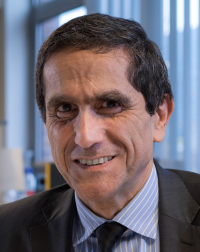 Day 2, 2024.12.10., 13:30-14:00 Plenary presentation: Introducing the Designing of a European Brain Health Landscape project
Day 2, 2024.12.10., 13:30-14:00 Plenary presentation: Introducing the Designing of a European Brain Health Landscape projectPhilippe Amouyel, MD, PhD, is the Chair of the EU Joint Programme on Neurodegenerative Disease Research (JPND), a collaborative initiative involving 30 countries, including Canada and Australia, aimed at addressing the challenges of neurodegenerative diseases, particularly Alzheimer’s disease. JPND unites nations to tackle issues that transcend the capacity of any single country. A neurologist by training, Dr. Amouyel is a Professor of Epidemiology and Public Health at the University Hospital of Lille in France. He leads a prominent academic research unit specializing in the public health and molecular epidemiology of aging-related diseases. His work focuses on decoding the susceptibility to aging diseases through advanced molecular techniques such as high-throughput genomics, transcriptomics, proteomics, and bioinformatics. His research primarily explores the genetic determinants of neurodegenerative diseases, with a strong emphasis on Alzheimer’s disease. He has contributed to the discovery of over 90% of the published genetic susceptibility factors for Alzheimer’s disease (H-index: 123). From 2002 to 2011, Dr. Amouyel served as the Director of the Institut Pasteur de Lille. Since 2008, he has been the General Director of Fondation Alzheimer in France, a private non-profit foundation dedicated to supporting innovative and cutting-edge research on Alzheimer’s disease and related disorders.
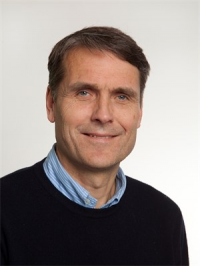 Day 1, 2024.12.09., 17:00-17:45 What is your story? Stakeholders in Brain Health research interactive session
Day 1, 2024.12.09., 17:00-17:45 What is your story? Stakeholders in Brain Health research interactive sessionProfessor University of Oslo, Director Centre for Precision Psychiatry, Oslo University Hospital, and attending psychiatrist.
His research focuses on causes and mechanisms of brain disorders and related traits, applying big data /mathematical modelling and AI-tools for translation to future clinical impact.
Coordinator in EU Horizon projects, chair of global research networks in brain related disorders (mental, imaging, genetics), and board member Health Program Research Council of Norway.
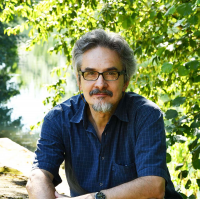 Day 2, 2024.12.10., 11:30-12:30 Parallel session 2: Challenges in Widening countries: Bridging the innovation divide with European Brain Health collaborations
Day 2, 2024.12.10., 11:30-12:30 Parallel session 2: Challenges in Widening countries: Bridging the innovation divide with European Brain Health collaborationsProf. Pavle Andjus, PhD Full professor (General Physiology with Biophysics and Neurophysiology), Founder and head of Center for laser microscopy, Faculty of Biology University of Belgrade. Coordinated the first FP project in biomedicine in Serbia - FP6 project “NEUROIMAGE”, and recently succesfully finalized H2020 MSCA RISE project “AUTOIGG” with 9 participants aiming to design a lab & optics-on-a-chip device using fluorescence signaling for innovative diagnostics of neurodegenerative diseases. President of the Serbian Brain Council the member of the European Brain Council (EBC) and liaison of the National Councils to the EBC, European Society for Molecular Imaging Board member, Former Association of Italian and Serbian Scientists Steering committee member, Former president of the Biophysical Society of Serbia, Founding member of the Optical Society of Serbia, Founded PhD programmes in Biophotonics and Biophysics at the University of Belgrade; Recently founded the startup “dAIgnostics”. Expertise: neurobiophysics of ion channels and cellular mechanisms in neurodegenerative diseases and use of advanced microscopy in bioimaging.
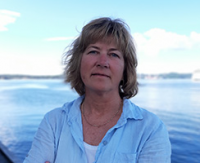 Day 1, 2024.12.09., 13:00-13:45 Panel discussion: Setting the scene: Towards a holistic approach of European Brain Health research
Day 1, 2024.12.09., 13:00-13:45 Panel discussion: Setting the scene: Towards a holistic approach of European Brain Health research
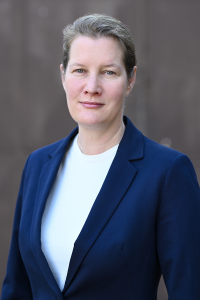 Day 2, 2024.12.10., 9:30-10:30 Pieces of the same puzzle: Good practices and recommendations for pan-European joint efforts from the European Brain Health research initiatives
Day 2, 2024.12.10., 9:30-10:30 Pieces of the same puzzle: Good practices and recommendations for pan-European joint efforts from the European Brain Health research initiatives
Day 2, 2024.12.10., 13:45-14:30 Plenary session: Introducing the Designing of a European Brain Health Landscape project
Dr. Ulrike Busshoff is Head of the International Health Research Department at the DLR Project Management Agency, Germany. She oversees national, European and international research funding programmes in the area of brain health and global health. Besides conceptualizing and executing research funding programs on behalf of the German Federal Ministry of Education and Research she is also responsible for overarching topics like patient and public involvement, quality assurance in biomedical research, and ethical issues.
Dr. Busshoff is the coordinator of the ERA-Net NEURON that comprises ministries and funding agencies from 27 countries in and beyond Europe. Members in this network collaborate along a common research agenda, and with support by the European Commission to jointly fund research, networking and training activities in the area of neurological and mental disorders. Since 2023, Dr. Busshoff is also the coordinator of the CSA BrainHealth. This network conceptualizes and prepares the European Partnership for Brain Health. This large-scale endeavour will support brain health research and innovation with the ultimate goal to preserve and promote brain health. She serves also as member of the Advisory Board EU-Africa PerMed, a CSA fostering joint projects in personalised medicine research between Europe and Africa. Dr. Busshoff holds a PhD in neurobiology from the University of Heidelberg.
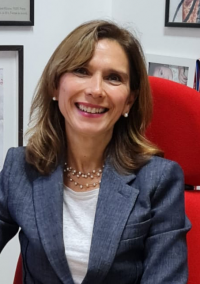 Day 1, 2024.12.09., 14:15-15:15 Panel session: Global Dialogue in Brain research
Day 1, 2024.12.09., 14:15-15:15 Panel session: Global Dialogue in Brain researchDay 1, 2024.12.09., 17:00 – 17:45 What is your story? Stakeholders in Brain Health research interactive session: Session 4. What are the gaps in Brain health research and how to address them?
Francesca Cirulli is Research Director at the Center for Behavioural Sciences and Mental Health, Istituto Superiore di Sanità, Rome, Italy. Her research focuses on the study of biomarkers of risk and resilience for mental disorders with a specific focus on the role of stress. She is carrying out preclinical and clinical research investigating shared biomarkers between psychological stress and metabolic stress from a lifelong perspective, addressing more broadly the role of lifestyle in the prevention and treatment of mental disorders. She Chairs the Nutrition Network of the European College of Neuropsychopharmacology. She has been the President of the European Brain and Behavior Society (EBBS) and the Treasurer of the Federation of European Neuroscience Societies (FENS).
She is Chair of Alba Network, a division of FENS engaging the global neuroscience community, promoting diversity and equity in Brain Sciences. She is Senior Editor for Neuroscience and Biobehavioral Reviews and Neuroscience Applied and was recently appointed Chief Editor of Neuroscience, the IBRO Journal.
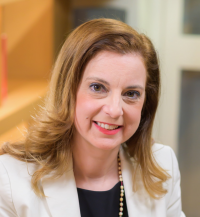 Day 2, 2024.12.10., 11:30-12:30 Parallel session 2: Challenges in Widening countries: Bridging the innovation divide with European Brain Health collaborations
Day 2, 2024.12.10., 11:30-12:30 Parallel session 2: Challenges in Widening countries: Bridging the innovation divide with European Brain Health collaborationsDr. Christina Dalla is Professor of Pharmacology at the Medical School, 2nd Department of Obstetrics – Gynecology, Aretaieio Hospital of the National and Kapodistrian University of Athens (NKUA) in Greece. She is President of the Mediterranean Neuroscience Society and President of the Hellenic Brain Council, chair of the Communication Committee of the Federation of European neuroscience Societies/FENS and member of the board of directors of the European Brain Foundation. Dr. Dalla is section-editor at European Journal of Neuroscience and member of the Educational and Scientific Committees of the European College of Neuropsychopharmacology. She is chair of the Gender Equality Committee of the Medical School at NKUA and serves at committees at the National Medicines Organization of Greece. Her work focuses on sex differences in neuropsychiatric disorders and novel treatments with a focus on depression and anxiety.
Dr. Dalla received her first diploma from the Pharmacy School of the NKUA and continued her studies in Neuropsychopharmacology in Athens, at the University of Liege in Belgium and at the Rutgers University of New Jersey, U.S.A. with two European Union Marie Curie Fellowships. She has received numerous awards, such as the “L’Oreal-Unesco” for Greek Women in Science and the European College of Neuropsychopharmacology fellowship award.
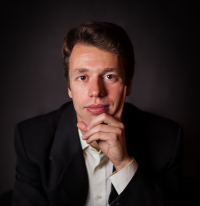 Day 1, 2024.12.09., 16:00-16:50 Parallel session 1: Discovery neuroscience research as a foundation for brain health
Day 1, 2024.12.09., 16:00-16:50 Parallel session 1: Discovery neuroscience research as a foundation for brain healthBalázs Hangya was trained as a medical doctor at Semmelweis University, Budapest and received his MD degree in 2006. In parallel he was also trained as a mathematician and received a master’s degree in Probability Theory and Statistics from Eotvos Lorand University, Budapest in 2007. He joined the laboratory of Tamas Freund at the Institute of Experimental Medicine, Budapest, where he worked on the neural mechanisms of hippocampal and neocortical oscillations. He received his PhD in Neuroscience in 2010 from the Janos Szentagothai Doctoral School. Hangya spent four and a half years in the United States as a postdoctoral researcher in the Kepecs lab at Cold Spring Harbor Laboratory where he studied the role of the basal forebrain cholinergic system in attention and learning. He started his independent laboratory in the Institute of Experimental Medicine, Budapest in 2015, investigating the neuromodulatory control of cognitive functions including learning and decision making.
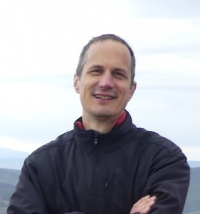 Day 2, 2024.12.10., Parallel session 2. Challenges in Widening countries: Bridging the innovation divide with European Brain Health collaborations How can Europe build on the talent from all over Europe? Perspective on Widening countries
Day 2, 2024.12.10., Parallel session 2. Challenges in Widening countries: Bridging the innovation divide with European Brain Health collaborations How can Europe build on the talent from all over Europe? Perspective on Widening countriesDr. Daniel Hillier was born in 1978 in Budapest. He earned his master’s degree in Digital Signal Processing from the Budapest University of Technology and Economics (1998–2002) and completed his PhD at the Faculty of Information Technology of Pázmány Péter Catholic University, focusing on retina-inspired machine vision. Throughout his career, he has conducted research at prestigious international institutions, including Harvard Medical School and the Friedrich Miescher Institute, where he analyzed and classified retinal ganglion cells.From 2008 to 2018, he was a postdoctoral fellow at the Friedrich Miescher Institute for Biomedical Research, investigating cortical computations in the mouse visual cortex. He later joined the Research Centre for Natural Sciences of the Hungarian Academy of Sciences as a scientific advisor and subsequently as a group leader, focusing on genetic manipulation of visual circuits.From 2020 to 2024, he has led the Visual Circuits and Repair Group at the German Primate Center in Germany.Over the course of his career, he has been recognized with prestigious awards and fellowships, including the Marie Curie Fellowship, the EMBO Fellowship, and the Chiquet-Ehrismann Prize.His primary research areas include visual neuroscience, microscopy, image processing, machine vision, and gene therapy. He has presented his findings at renowned international conferences such as CNRS in Paris and the Kavli Institute Neuroscience Meeting.
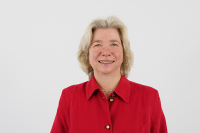 Day 1, 2024.12.09., 17:00 – 17:45 What is your story? Stakeholders in Brain Health research interactive session: Session 1. How do you see the benefit of European research efforts in your daily work?
Day 1, 2024.12.09., 17:00 – 17:45 What is your story? Stakeholders in Brain Health research interactive session: Session 1. How do you see the benefit of European research efforts in your daily work?Sabine Hölter-Koch is a neurobiologist and group leader at the German Mouse Clinic at Helmholtz Munich. She graduated from the University of Tübingen with a Ph.D. in Behavioural Pharmacology and completed a habilitation in Behavioural Neuroscience at Technical University Munich, where she is teaching Behavioural Biology. Her research into translationally relevant aspects of genetic mouse models aims to unveil pleiotropic gene functions and the genetic contributions to neurodevelopmental, neurodegenerative and rare diseases to identify new treatment options. This work involves behavioural, brain histological and bioinformatic approaches, often in interdisciplinary projects with human geneticists, neurologists or psychiatrists. She is Vice Chair of the International Mouse Phenotyping Consortium, chair of the ECNP Preclinical Data Forum Network, PI in the German Centre for Mental Health (DZPG) and coordinator of EBRA’s PREMOS cluster. She also serves as Science Communication Coordinator of COST Action CA20135 which advances automated monitoring technologies for biomedical research and animal welfare, and as member of the EBRAINS Science & Technology Committee.
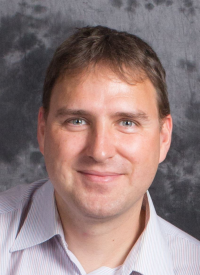 Day 1, 2024.12.09., 16:00-16:50, Parallel session 1. Discovery neuroscience research as a foundation for brain health
Day 1, 2024.12.09., 16:00-16:50, Parallel session 1. Discovery neuroscience research as a foundation for brain healthAttila Kaszas is the Head of the Multimodal Neurotechnology Research Group at the Research Centre for Natural Sciences in Budapest, Hungary. With a strong background in neurotechnology, his research integrates imaging and electrophysiological techniques to study and modulate brain activity. During his time in Marseille, France, he contributed to the development of innovative devices for the synchronous observation and modulation of brain function in both healthy and diseased states. He played a key role in adapting multielectrode arrays to monitor and modulate epileptic activity, and his work on transparent microelectrocorticography (µECoG) probes has enhanced the ability to simultaneously record and stimulate neuronal activity with high spatial and temporal resolution. His current focus is on combining deep tissue imaging with electrophysiology to explore potential treatments for glioblastoma and epilepsy, with a particular interest in clinical applications. Dr. Kaszas’ multidisciplinary research brings together cell biology, neuroscience, engineering, and physics, with the goal of advancing neurotechnology, all committed to advancing neurotechnology toward real-world applications in both health and disease.
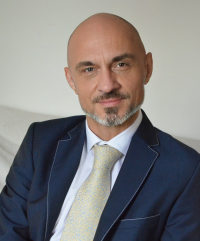 Day 1, 2024.12.09., 17:00 – 17:45 What is your story? Stakeholders in Brain Health research interactive session: Session 1. How do you see the benefit of European research efforts in your daily work?
Day 1, 2024.12.09., 17:00 – 17:45 What is your story? Stakeholders in Brain Health research interactive session: Session 1. How do you see the benefit of European research efforts in your daily work?Day 2, 2024.12.10., 11:30-12:30 Parallel session 3: Patient organizations’ involvement in Brain research cooperation
Kéri Péter, a teacher and PR expert, is responsible for international relations, grants, and innovations at the Ébredések Alapítvány, Hungary. He is president of GAMIAN-Europe, the largest patient-driven organization on the continent supporting individuals facing mental health issues, and a Member of the Board of the European Psychiatric Association and the European Brain Council. He collaborates closely with several prominent organizations, including the WHO European Office, the OECD, and King’s College London. Through GAMIAN-Europe’s extensive network of member organizations spanning the entire continent, Kéri has a comprehensive understanding of the diverse aspects of patient involvement in mental health care systems. As president of GAMIAN-Europe, Kéri considers his most important mission to be fostering a deeper understanding of patients' lived experiences among all stakeholders in the mental health ecosystem. By doing so, he aims to promote better recovery outcomes and more effective support structures. His work emphasizes identifying and addressing the barriers to recovery that patients face post-diagnosis, with the goal of reducing these challenges on a country-by-country basis across Europe. A dedicated advocate and speaker, Kéri regularly shares his insights at international conferences and contributes to advancing the field through research and publications.
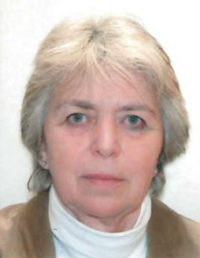 Day 1, 2024.12.09., 13:00-14:15 High-level opening session Panel discussion Setting the scene: Towards a holistic approach of European Brain Health research
Day 1, 2024.12.09., 13:00-14:15 High-level opening session Panel discussion Setting the scene: Towards a holistic approach of European Brain Health researchDay 1, 2024.12.09., 15:45-15:55 Introduction to parallel sessions: Social impacts
I have been a patient advocate for decades, serving on the boards of several national and European NGOs. My personal involvement has affected the daily lives of many chronic diseases, from diagnosis to almost the multi-morbid status of old ages. I am an EUPATI fellow and a member of committees and working groups of various European and local professional organizations. I am a founder and leader of several patients' and other professional organizations, and our good and visible work is recognized not only by the affected people, but also by healthcare professionals. I am convinced that patients with chronic, lifelong chronic conditions need to be supported by healthcare professionals, other stakeholders, and especially politicians and decision-makers to achieve the best possible quality of life. I'm convinced, that the diagnosis of chronic diseases does not mean simply the end of a “healthy life”, but the beginning of a different lifestyle for the patient, their family, and their social environment. Chronic disease management and regular patient follow-up are necessary, but never sufficient, for a long healhty life. Their social, educational, financial situation, legal/social care systems, and the social environment in general determine their living conditions, not mentioning their discrimination and vulnerability.
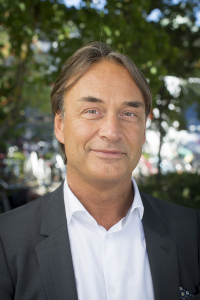 Day 1, 2024.12.09., 16:00-16:50 Parallel session 2: Incentivizing the translation of research results into practice. Where are the bottlenecks and how to overcome them?
Day 1, 2024.12.09., 16:00-16:50 Parallel session 2: Incentivizing the translation of research results into practice. Where are the bottlenecks and how to overcome them?Day 1, 2024.12.09., 17:00 – 17:45 What is your story? Stakeholders in Brain Health research interactive session: Session 4. What are the gaps in Brain health research and how to address them?
Niklas Marklund is the Professor of Neurosurgery at Lund University, Sweden. Dr. Marklund completed his PhD on experimental traumatic brain injury (TBI) research in 2001, and his neurosurgical residency in 2002 in Uppsala, Sweden. He was then a post-doctoral fellow at the Dept. of Neurosurgery, University of Pennsylvania, Philadelphia, USA from 2002-2004. He was 2010-2016 the Swedish representative in the European Association of the Neurosurgical Societies (EANS) and the Chair of the EANS Trauma & Critical Care section between 2017-2021. In 2024, he was selected EANS European Lecturer and he is the current Chair of the EANS Research Fund. In addition, he is European Editor for the Journal of Neurotrauma.
Dr. Marklund is a co-founder and board member of the European Neurotrauma Organization (ENO), a co-founder and 1st chair of the Swedish Sports Concussion Society (SSCS) and since long member of the Scandinavian Neurotrauma Committee. His translational TBI research includes projects ranging from experimental in vivo and in vitro TBI studies to clinical studies on neurocritical care monitoring, sports concussion, biomarkers and human TBI pathology. A main aim is the study mechanisms for white matter injury, neuroinflammation, plasticity and neurodegeneration after TBI.
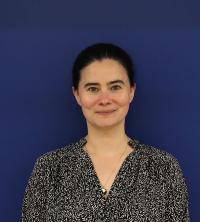 Day 2, 2024.12.10., 13:30-13:45 Plenary session: EC’s perspective on the European partnership for Brain Health
Day 2, 2024.12.10., 13:30-13:45 Plenary session: EC’s perspective on the European partnership for Brain HealthAfter formal training in chemistry (Ecole Normale Superieure, Paris), Catherine received her PhD in molecular and cell biology in 2008 from University Pierre and Marie (Paris, France) for her work on muscarinic receptors (Servent lab). From 2008 to 2012, she was a post-doctoral researcher in the Brain and Spine Institute (Potier lab, ICM, Paris, France) where she studied the role of cholesterol in Alzheimer’s disease. From 2012 to 2016, she was a post-doctoral fellow studying new regulators of intracellular trafficking and cholesterol homeostasis at Columbia University (Di Paolo lab, New York, USA).
She got promoted to assistant professor in 2016 and opened her lab at Columbia University where she focused on endolysosomal dysregulations in neurodegeneration with a focus on Alzheimer’s disease and lysosomal storage disorders.
She collaborated with a number of international scientists from different backgrounds (academia and industry) and various expertise, leading to numerous publications and patents in the cell biology and neurodegeneration fields. Now back in Europe, Catherine has recently joined the French National Research Agency (ANR) as the international coordinator for Neurosciences.
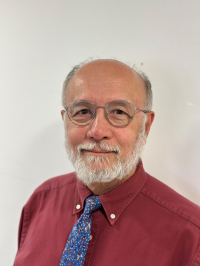 Day 1, 2024.12.09., 14:15-15:15 Panel session: Global Dialogue in Brain research
Day 1, 2024.12.09., 14:15-15:15 Panel session: Global Dialogue in Brain researchDavid Menon is Director of Research at the University of Cambridge, and an Emeritus Senior Investigator in the National Institute for Health and Care Research (NIHR). He is a Founding Fellow of the Academy of Medical Sciences (UK), and a Professorial Fellow in the Medical Sciences at Queens’ College, Cambridge. His achievements led to appointment as Commander of the Order of the British Empire (CBE) in June 2024. He was the first Director of the Neurosciences Critical Care Unit (NCCU) at Addenbrooke’s Hospital, Cambridge, where he established the first UK training programme for specialist neurocritical care. He jointly leads the EU-funded €30 million CENTER-TBI Consortium, the International Initiative on TBI Research, and the multi-funder UK national Traumatic Brain Injury (TBI) Research. He jointly led Lancet Neurology Commissions on TBI in 2017 and 2022, and was Executive Editor of the UK All Party Parliamentary Group Report on Acquired Brain Injury. He has been applicant or co-applicant on awarded grants totaling over $60 million. He has over 650 peer-reviewed publications, with a ‘h’ index of over 130 (Google Scholar) and has been continuously rated as a Highly Cited Researcher by Clarivate since 2021.
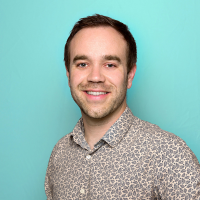 Day 2, 2024.12.10., 11:30-12:30., Parallel session 3. Patient organizations’ involvement in Brain research cooperation
Day 2, 2024.12.10., 11:30-12:30., Parallel session 3. Patient organizations’ involvement in Brain research cooperationDomokos Meszena, PhD is an engineer and neuroscientist with translational and clinical research interests. Over the past two years, he has served as a research fellow at the Center for Neurotechnology and Neurorecovery within the Department of Neurology at Massachusetts General Hospital (MGH), Harvard Medical School in Boston, MA, USA. Currently, he holds a postdoctoral research associate position in the Integrative Neuroscience Group at the HUN-REN Research Centre for Natural Sciences (RCNS) in Budapest, Hungary. Domokos obtained his Ph.D. degree (summa cum laude) in October 2020 from Pázmány Péter Catholic University, Faculty of Information Technology and Bionics in Budapest where he continues to teach neuroscience and mentor undergraduate research students. His recent collaborative work with MGH/Harvard focuses on exploring cutting-edge intraoperative neurotech solutions using high-density electrophysiology, that may have significant human therapeutic perspectives. His expertise and interest extend to the clinical and industrial implementation of neurotechnology, including an understanding of associated risks and regulatory challenges, informed by his extensive work in the human intraoperative field.
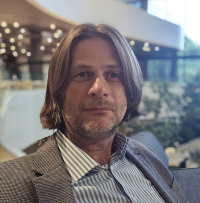 Day 2, 2024.12.10., 11:30-12:30 Parallel session 2: Challenges in Widening countries: Bridging the innovation divide with European Brain Health collaborations
Day 2, 2024.12.10., 11:30-12:30 Parallel session 2: Challenges in Widening countries: Bridging the innovation divide with European Brain Health collaborationsAfter earning his MD and PhD and completing advanced training in neurological diseases, Prof. Mitrečić pursued several years of international education in EU, US and Singapore. He has since served as a coordinator and partner in about 40 international projects, focusing on the application of cutting-edge technologies in the study and treatment of brain diseases. Prof. Mitrečić's research centers on the cellular and molecular mechanisms underlying the pathophysiology of brain disorders and on innovative strategies to accelerate the translation of research findings into clinical trials. Notably, several projects under his coordination have led to the establishment of state-of-the-art facilities dedicated to basic, translational, and clinical research on neuromuscular, neurodegenerative, and neurovascular diseases. In addition to his research achievements, Prof. Mitrečić serves on strategic boards, including the European Brain Council and the European Joint Programme for Neurodegenerative Diseases. Moreover, he serves as an advisor to multiple national institutions across various European Union member states, providing strategic guidance and expertise in the development of research- and education-focused systems. In recent years, he has actively advocated for brain disease awareness and has taken on a key role in educating future leaders in knowledge-driven entrepreneurship.
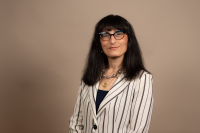 Day 1, 2024.12.09., 16:00-16:50 Parallel session 2: Incentivizing the translation of research results into practice. Where are the bottlenecks and how to overcome them?
Day 1, 2024.12.09., 16:00-16:50 Parallel session 2: Incentivizing the translation of research results into practice. Where are the bottlenecks and how to overcome them?Dr. Elena Moro is a Professor of Neurology at the Grenoble Alpes University (France). She graduated in Medicine at the University of Trieste (Italy) and completed her residency in Neurology at the Catholic University in Rome (Italy). She received her PhD in Neurosciences from the Catholic University in Rome. She is currently the Director of the Movement Disorders Center, and the Chair of the Department of Psychiatry, Neurology, Neurological Rehabilitation and Forensic Medicine at the CHU of Grenoble. Her major area of interest is surgical treatment of movement disorders, especially deep brain stimulation. She has been actively involved in the International Movement Disorders Society (MDS) and has become Honorary Member. She is currently the President of the European Academy of Neurology.
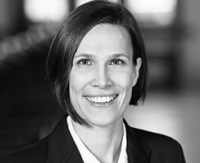 Day 1, 2024.12.09., 16:00-16:50 Parallel session 1: Discovery neuroscience research as a foundation for brain health
Day 1, 2024.12.09., 16:00-16:50 Parallel session 1: Discovery neuroscience research as a foundation for brain health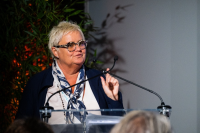 Day 1, 2024.12.09., 13:00-14:15 High-level opening session
Day 1, 2024.12.09., 13:00-14:15 High-level opening sessionIrene Norstedt works at the European Commission where she is the Director responsible for the People: Health and Society Directorate within the DG for Research and Innovation. The People Directorate works towards the development of a healthy, safe, more equal, free, open and fair society, where the voice of the citizen and different communities are better heard. Irene has been at the European Commission since 1996, and has worked on various aspects of research in life sciences and particular health research throughout her career in the Commission. Areas of particular interest have been the set up of the public private partnership the Innovative Medicines Initiative (IMI) and the International Rare Diseases Research Consortium (IRDiRC). Prior to joining the European Commission, she worked for the Swedish life science company Biacore AB and at the Swedish embassy in London. Irene studied at the Royal Institute of Technology in Stockholm and University of Sussex, and holds a Master of Science (MsC) in Chemical Engineering.
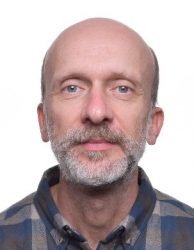 Day 2, 2024.12.10., 13:30-13:45 Plenary session: EC’s perspective on the European partnership for Brain Health
Day 2, 2024.12.10., 13:30-13:45 Plenary session: EC’s perspective on the European partnership for Brain HealthTim Raemaekers joined DG Research & Innovation at the European Commission in 2019 where he works on policy development in the area of brain health, including mental health. Prior to this, and since 2014, he worked at the Joint Research Centre in Italy where he supported projects in the areas of biotechnology and medical technology. He was trained as a bioengineer in cell and gene biotechnology and holds a PhD in the Medical Sciences from the University of Leuven (Belgium).
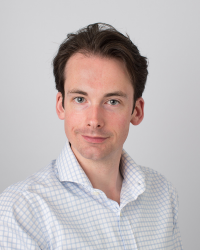 Day 1, 2024.12.09., 16:00-16:50 Parallel session 1: Discovery neuroscience research as a foundation for brain health
Day 1, 2024.12.09., 16:00-16:50 Parallel session 1: Discovery neuroscience research as a foundation for brain healthDay 1, 2024.12.09., 17:00 – 17:45 What is your story? Stakeholders in Brain Health research interactive session: Session 3. What would you need for strengthened participation in European collaborative efforts?
Tomás Ryan is Professor in Neuroscience at Trinity College Dublin in Ireland, and is the current Chair of the Advocacy committee of the Federation of European Neuroscience Societies (FENS). He originally graduated from Trinity College Dublin in 2005 with a BA in Genetics, and completed his PhD in Molecular Biology at the University of Cambridge and the Wellcome Trust Sanger Institute in the UK in 2009. Following a year as Junior Research Fellow at Wolfson College, University Cambridge, he relocated to the USA to work as a Postdoctoral Researcher in the group of Susumu Tonegawa (Nobel Laureate in Physiology or Medicine, 1987) at Massachusetts Institute of Technology (MIT). At MIT he was centrally involved in the development of novel genetic methods that allow for the labelling and manipulation of specific memory engrams in the rodent brain. He started his research group in 2017 at Trinity College Dublin, where he is Professor in the School of Biochemistry and Immunology and a Principle Investigator at the Trinity College Institute of Neuroscience. Tomás also holds a joint faculty position at the Florey Institute of Neuroscience and Mental Health at the University of Melbourne, Australia. He is a former Chair of FENS-Kavli Network of Excellence.
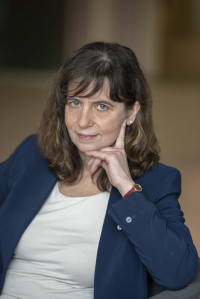 Day 2, 2024.12.10., 9:00-9:30 Recap and highlights of Day 1. Setting the scene for Day 2
Day 2, 2024.12.10., 9:00-9:30 Recap and highlights of Day 1. Setting the scene for Day 2Beata Sperlagh is the director, research professor and Head of Laboratory of Molecular Pharmacology of HUN-REN Institute of Experimental Medicine, Budapest, Hungary; honorary professor of Pharmacology, Semmelweis University, Budapest. She is the corresponding member of the Hungarian Academy of Sciences (HAS) and the Academia Europaea. She graduated as an MD at the Semmelweis University and obtained her PhD in 1994. She was a visiting scientist in the Center for Neurochemistry in Orangeburg, New York in 1991, 1992 and 1996. Her main scientific interest is neuroscience and pharmacology having major achievements by the discovery of the P2 purinergic receptors regulating neurotransmission and identification of P2X7 receptors as new drug target in psychiatric disorders. She has strong commitment to the translation of basic science findings to new therapies with established relationship with pharma companies.
She has 244 publications in international scientific journals receiving over 11000 citations. She is the Governance Chair of International Union of Basic and Clinical Pharmacology (IUPHAR) and the member of the Bioscience Steering Committee of the European Academies' Science Advisory Council (EASAC).
She is the past and present member of prestigious funding bodies including LS7 Panel of the European Research Council (ERC), and the Hungarian National Science Foundation.
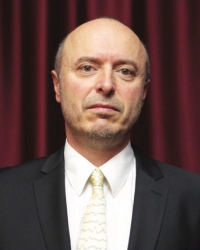 Day 1, 2024.12.09., 16:00-16:50 Parallel session 2. Incentivizing the translation of research results into practice. Where are the bottlenecks and how to overcome them?
Day 1, 2024.12.09., 16:00-16:50 Parallel session 2. Incentivizing the translation of research results into practice. Where are the bottlenecks and how to overcome them?István Ulbert obtained his MSc degree in electrical engineering from the Budapest University of Technology in 1988, and his MD degree from Semmelweis University, Budapest in 1997. In 2002, he obtained his PhD in neuroscience at the Doctoral School of Semmelweis University, Budapest later he was awarded the title of Doctor of the Hungarian Academy of Sciences in 2014. He spent his postdoctoral years at Stanford University Medical Center, Department of Neurosurgery, and Harvard University Medical School, Department of Radiology. He is currently group leader and director of the Institute of Cognitive Neuroscience and Psychology, HUN-REN Research Centre for Natural Sciences, full professor at the Faculty of Information Technology and Bionics, Pázmány Péter Catholic University, Budapest and deputy research director at Department of Neurosurgery and Neurointervention, Semmelweis University. He is author of more than 140 articles, including some published in the most prestigious journals in the field of neuroscience, such as Science, Nature Neuroscience, Neuron, PNAS, Brain and The Journal of Neuroscience. His main area of interest is the development of implantable bioelectronics and the investigation of intracortical generators of brain oscillations in humans. He is founder, owner and co-owner of two neurotechnology companies.
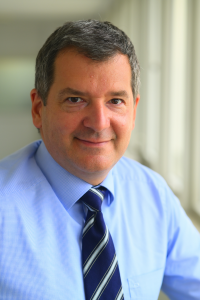 Thilo van Eimeren’s scientific curiosity lies in understanding the structural and molecular determinants of brain function in both health and disease. With the ultimate vison of preventing neurodegenerative disorders such as Parkinsonian Disorders and Alzheimer’s disease, my research aims to uncover pathogenic and therapeutic mechanisms in these conditions. To achieve this, he integrates molecular, structural and functional brain imaging techniques to provide deeper insights into disease progression and treatment effects. A significant focus is on the early detection of Parkinsonian Disorders utilizing biological and genetic markers associated with Parkinson’s disease to create precise diagnostic tools capable of detecting the condition at its earliest stages. Beyond research, he is deeply committed to translating these findings into clinical applications. This includes the development and implementation of advanced neuroimaging standards that enhance diagnostic accuracy and patient care. Collaboration is at the heart of his work. He coordinates international initiatives like the European Cluster for Imaging Biomarkers and the Neuroimaging Study Group of the International Parkinson and Movement Disorder Society. Through these efforts, he strives to bridge the gap between basic science and clinical practice, fostering innovation and improving outcomes for individuals affected by neurodegenerative diseases.
Thilo van Eimeren’s scientific curiosity lies in understanding the structural and molecular determinants of brain function in both health and disease. With the ultimate vison of preventing neurodegenerative disorders such as Parkinsonian Disorders and Alzheimer’s disease, my research aims to uncover pathogenic and therapeutic mechanisms in these conditions. To achieve this, he integrates molecular, structural and functional brain imaging techniques to provide deeper insights into disease progression and treatment effects. A significant focus is on the early detection of Parkinsonian Disorders utilizing biological and genetic markers associated with Parkinson’s disease to create precise diagnostic tools capable of detecting the condition at its earliest stages. Beyond research, he is deeply committed to translating these findings into clinical applications. This includes the development and implementation of advanced neuroimaging standards that enhance diagnostic accuracy and patient care. Collaboration is at the heart of his work. He coordinates international initiatives like the European Cluster for Imaging Biomarkers and the Neuroimaging Study Group of the International Parkinson and Movement Disorder Society. Through these efforts, he strives to bridge the gap between basic science and clinical practice, fostering innovation and improving outcomes for individuals affected by neurodegenerative diseases.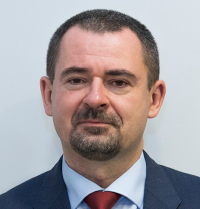 Day 1, 2024.12.09., 16:00-16:50 Parallel session 3: Potentials for healthy ageing from a transdisciplinary perspective – What is the role of the European RDI cooperation?
Day 1, 2024.12.09., 16:00-16:50 Parallel session 3: Potentials for healthy ageing from a transdisciplinary perspective – What is the role of the European RDI cooperation?Daniel K. Wójcik trained as a theoretical physicist in Warsaw, Poland. After two postdocs in physics at the University of Maryland and Georgia Institute of Technology he joined the Nencki Institute for Experimental Biology of the Polish Academy of Sciences where he currently runs the Laboratory of Neuroinformatics. The main focus of his group is development of computational tools for model-based data analysis spanning electrophysiological, behavioral and imaging data. The main interests of the group are source localization of electrical activity in the brain including epilepsy, behavior modeling including social aspects of learning, development of brain atlases and related tools, and study of electrophysiological signatures of psychosis. Dr. Wójcik is actively engaged on national and international level to push his agenda of solidifying theoretical and computational basis of neurobiology. He was a Treasurer of the Polish Neuroscience Society, a Director of the Organization for Computational Neuroscience, a member of the Committee for Higher Education and Training of the Federation of European Neuroscience Societies and the Polish representative to the International Neuroinformatics Coordinating Facility. He is currently the Chair of the Neurobiology Committee of the Polish Academy of Sciences and a member of the International Brain Research Organization – Pan-Europe Regional Committee.
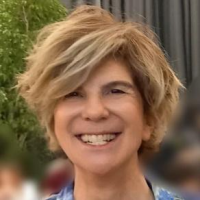 Day 2, 2024.12.10., 11:30-12:30 Parallel session 3: Patient organizations’ involvement in Brain research cooperation
Day 2, 2024.12.10., 11:30-12:30 Parallel session 3: Patient organizations’ involvement in Brain research cooperationPaola Zaratin is the Director of Scientific Research for the Italian MS Society and its Foundation. She has over 30 years’ of experience working in Neuroscience research acquired in Public, Private and Patients’ Organizations, and 24 years in the field of MS. She also has 22 years of experience working in Drug Discovery and Development in the Neuroscience area. As director of scientific research of the Italian MS Society Foundation, Paola has developed a management model for the Italian MS Society portfolio that also allows effective programs of technology transfer aimed at developing new therapies (pharmacological and rehabilitation) for people with MS. She has been a coordinator of several international research initiatives and projects. In her quality as Coordinator (2018- 2021) of the EU Responsible Research Innovation H2020 MULTI-ACT project, Paola led the development of a new research governance model and guidelines to engage patients as key stakeholders in multistakeholder health research initiatives. Paola is the chair of the Scientific Committee of the global Patient Reported Outcomes Initiative for Multiple Sclerosis (PROMS; 2019-present); Member of the European Charcot Foundation Multistakeholder Initiative (2019-present); Member of the Scientific Committee (2012-present) and of the Industry Forum (2014-present) of the International Progressive MS Alliance. Paola is author of more than 85 publications (1987-2024).
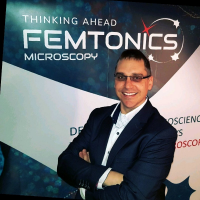 Day 1, 2024.12.09., 16:00-16:50 Parallel session 2. Incentivizing the translation of research results into practice. Where are the bottlenecks and how to overcome them?
Day 1, 2024.12.09., 16:00-16:50 Parallel session 2. Incentivizing the translation of research results into practice. Where are the bottlenecks and how to overcome them?Zsolt Ivan PharmD. joined the Femtonics Sales team in 2016 as a product specialist and sales representative. Over the years, he has advanced to the role of Chief Revenue Officer (CRO) and Customer Care Division Director. Dr. Ivan consistently demonstrates unwavering enthusiasm and dedication to meeting our clients’ needs. His greatest source of satisfaction is derived from receiving positive feedback from customers who have achieved significant research milestones through the utilization of Femtonics systems.
Dr. Ivan holds degrees in pharmacology, clinical studies, and economics, and he brings extensive prior experience in management to his current role. He is deeply committed to continually enhancing his expertise in the dynamic field of multiphoton microscopy.
| About | Registration | Program | Speakers | Livestreaming | Accommodation | Getting here | Photos | Documents |






